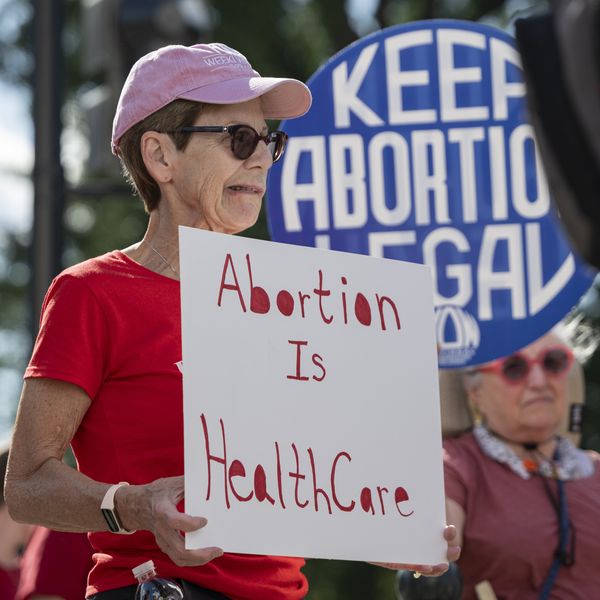Earlier this week, in a case brought by the ACLU, the ACLU of Arizona, and the Center for Reproductive Rights, the U.S. Court of Appeals for the 9th Circuit struck down an extreme Arizona law that bans abortion care starting at 20 weeks. The court called it "per se unconstitutional." That's judicial-speak for "are you kidding me with this?"
And yet today, the
U.S. House of Representatives held a hearing on a bill from Rep. Trent Franks (R-Ariz.) that would do the very same thing--except this one wouldn't be limited to Franks' home state of Arizona. Initially, Franks targeted the women of D.C., but has since
announced his intention to expand his scope nationwide.
Franks' bill takes a private, medical decision away from a woman and her family, and gives it to politicians. We may not all agree on abortion all the time, but we should be able to agree that these decisions have to rest with families, not with Congress.
Every pregnancy is different. For many women and families, it's a joyous time. But none of us can presume to know what complications may arise during a pregnancy, or all the circumstances surrounding a personal, medical decision to continue or to end it. Only a woman and her family know, and that's why only a woman and her family should make these important decisions.
Last year the Subcommittee heard from Christy Zink, who bravely testified again today. She learned mid-way through her pregnancy that, if she carried to term, she would tragically give birth to a baby missing half his brain. "The answers were far from easy to hear," she recalled, "but they were clear. There would be no miracle cure." Christy and her husband considered their situation and made the best decision for their family: to end the pregnancy.
Christy's not alone. Other women find themselves in her situation, or facing illnesses that will leave them to suffer blindness, kidney failure, or permanent infertility if they're denied the abortion care they need.
Franks' bill would send physicians to jail for providing their patients with needed care at a difficult time. It's an attempt to turn politicians into doctors, and expert, compassionate doctors into criminals.
"I am horrified to think," Christy told Congress, "that the doctors who compassionately but objectively explained to us the prognosis and our options for medical treatment, and the doctor who helped us terminate the pregnancy, would be prosecuted as criminals under this law for providing basic medical care and expertise."
This is just one in the latest round of attacks in the war on women. Throughout the country, politicians are pushing forward extreme laws that would rob women of the services they need to make personal decisions about pregnancy free from political interference. Just look at Arkansas, North Dakota, and Kansas.
Enough is enough. It's time to stop extremist politicians' interference in our most personal and private decisions. Franks' abortion ban isn't just "per se unconstitutional" - it's per se unconscionable.



